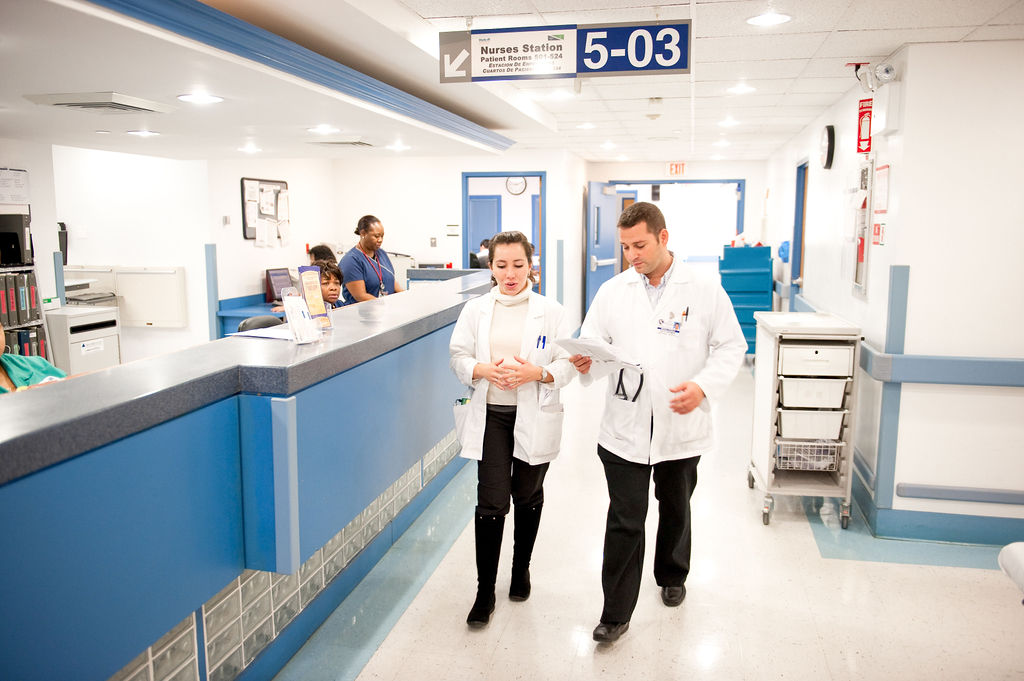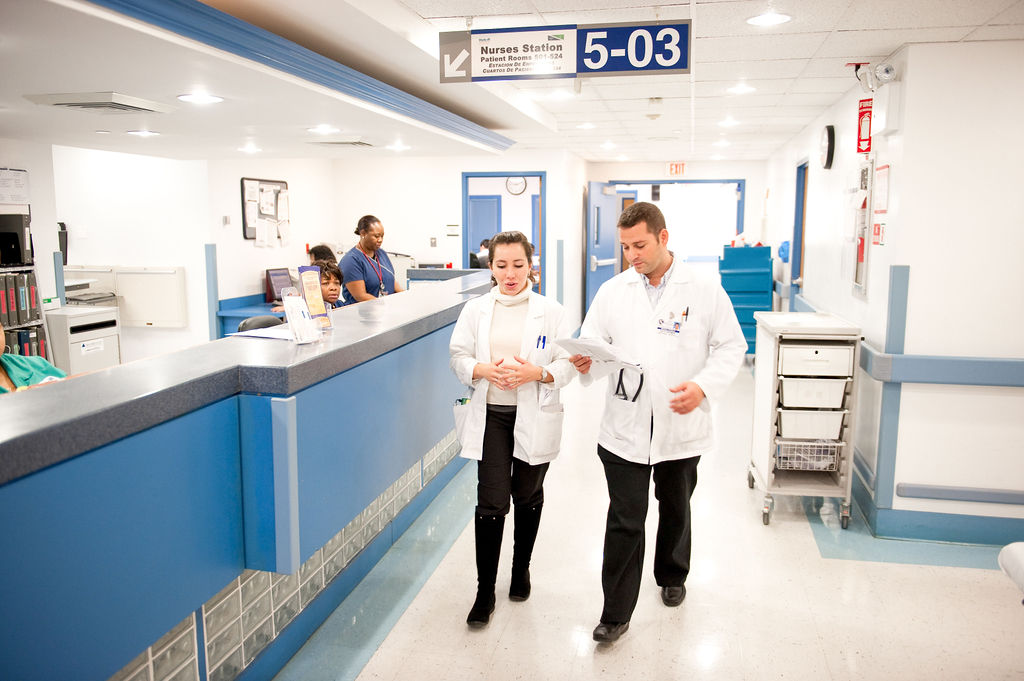
What Is a Medical Fellowship?
Explore the optional stage of training that comes after residency for aspiring physicians.
Last updated: March 21, 2025.
A medical fellowship comes after residency training and is an opportunity for doctors to specialize in their chosen field of medicine.
Medical fellowships last approximately one to three years and are popular among doctors looking to increase their earning potential and deepen their knowledge in a medical specialty.
Whether you’re in medical school, pursuing a residency or just curious about how to become a specialist, it’s important to understand the value of a medical fellowship.
So, what is a medical fellowship? Read our detailed guide, which explores all aspects of a fellowship, from the general purpose to a typical medical fellowship salary.
Purpose of a Medical Fellowship
Physicians pursue medical fellowships to become experts in various medical subspecialties, including pediatric cardiology and vascular surgery. Fellowships provide advanced training for doctors, allowing them to deepen their knowledge, improve patient care and enhance their careers within a medical specialty.
Following multiple years of residency training, doctors can further develop technical skills to perform advanced procedures and treat patients with complex conditions during a medical fellowship.
The enhanced skills and knowledge developed in a medical specialty opens doors to senior roles within the medical field, leading to career growth and exciting opportunities. Fellowships can also provide further academic research opportunities, allowing future physicians to enhance their contributions to the field of medicine.
Medical Resident vs. Fellow
Unlike a medical fellow, a resident is a recent medical school graduate pursuing postgraduate studies in a field of interest, such as family medicine, surgery or anesthesiology.
While there are some similarities between fellows and residents, there are some key differences.
1. Level of training
During a residency program, graduates get the first taste of focused training in a medical specialty. After successfully completing residency and required licensing exams, doctors are fully qualified to practice medicine. However, some doctors choose to pursue a medical fellowship, which provides advanced training in a subspecialty.
2. Training focus
While residencies and fellowships provide training in a specific medical field, residencies focus on general training to help resident doctors gain practical skills and enhance patient management. On the other hand, medical fellowships provide highly specialized training in a subspecialty, fostering expertise in specific techniques and procedures.
3. Duration
The time it takes to complete a program differs between residency and fellowships. So, how long is a medical fellowship? Fellowships generally last between one to three years, while residencies are usually longer, lasting between three to seven years.
4. Salary
The difference in salaries between residents and fellows can be minor. However, fellows usually receive a higher salary than residents, reflecting their more advanced training and expertise. A medical fellowship salary is typically between $60,000 and $70,000 USD annually in the United States.
5. Career stage
Another key difference between medical fellowship vs residency is the different career stages of residents and fellows. After completing a medical degree, residents are still in the early stages of their careers, while fellows are more experienced and are already licensed to practice medicine, having completed residency and the relevant licensing exams, such as the USMLE Step 3 in the U.S.



Types of Medical Fellowships
Depending on their interests and experience, graduates can pursue various types of fellowships across multiple specialties, including dermatology, emergency medicine and pathology.
Here are a few examples of the types of medical fellowships doctors can pursue after residency training:
- Surgery: General Surgery, Plastic Surgery, Orthopedic Surgery
- Anesthesiology: Pain Medicine, Critical Care Medicine, Hospice and Palliative Care
- Neurology: Brain Injury Medicine, Vascular Neurology, Child Neurology
- Pediatrics: Pediatric Pulmonology, Adolescent Medicine, Pediatric Cardiology
- Family Medicine: Sports Medicine, Geriatric Medicine, Sleep Medicine
- Internal Medicine: Hematology, Cardiovascular Disease, Oncology
Requirements and Application Process for Fellowship Programs
Doctors looking to become fellows in a medical subspecialty must meet various medical fellowship requirements.
Each fellowship program is different, so it is important to do your research. However, here are some general requirements that doctors must meet during the medical fellowship application process:
- Completion of medical school and residency: Medical fellowships follow the completion of medical school and residency training. Holding a medical degree and being licensed after completing a residency program in a specific medical specialty is essential.
- Clinical experience: Fellowship programs require doctors to have relevant clinical experience, which is usually obtained during residency. Some fellowships may require doctors to demonstrate specific clinical experience in the subspecialty.
- Personal statement: Learning how to write a personal statement is essential. The personal statement is an opportunity to highlight achievements, interests, goals and personal passion for fellowship admissions teams. Graduates must explain why they want to pursue a medical fellowship and are a good fit for a program.
- Resume: Building a medical resume throughout medical school and residency is key. Here, doctors can add all the important personal information, including work experience, awards, academic achievements and more.
- Letters of recommendation: Letters of recommendation are an important part of the medical fellowship application process. Having a letter of recommendation from a doctor (preferably in a relevant specialty) who oversaw the applicant during residency, medical school or other clinical experience is key.
- Application form: Most fellowship programs require a completed application form, which includes a personal statement, letters of recommendation, CV and other basic information.
- Fellowship interview: The interview stage is usually the final step to securing a medical fellowship. It is an opportunity to back up the application and impress the interviewers. It is essential to prepare for typical interview questions for medical fellowships and give confident answers that demonstrate understanding and experience.
Benefits of Completing a Medical Fellowship
Pursuing a medical fellowship offers various professional and personal benefits, from career advancement to expertise in a medical subspecialty.
Here are the top three reasons why doctors pursue various national medical fellowships:
1. Development of specialized skills
A medical fellowship allows doctors to gain expertise in an advanced area of medicine and develop specialized skills for managing complex patient cases.
2. Career enhancement
Doctors pursue fellowships to access senior roles in the medical field and enhance their earning potential. Fellowship-trained doctors are in high demand, which makes pursuing a fellowship in a medical subspecialty attractive to many medical professionals.
Many people ask what does fellowship-trained mean? Fellowship-trained doctors refer to doctors who have completed a fellowship program and gained specialized training in a subspecialty. They have a good reputation in the medical field, which provides career progression opportunities.
3. Pursue personal interests
In addition to the professional benefits of earning a medical fellowship, doctors seek the fulfillment and challenge of completing a fellowship. Many doctors are keen to further explore a medical subspecialty they are interested in, which opens the door to various research opportunities.
What Comes After a Fellowship in Medicine?
After completing a medical fellowship, doctors can pursue various career paths. Completing a medical fellowship generally marks the end of formal medical education and training, enabling doctors to pursue their interests and use the platform they have built for a successful medical career.
Doctors can pursue clinical practice and academia, engage in public health work, open or join a private practice, pursue clinical research and much more.
Fellows are in high demand in the medical field, so they can choose a suitable career that matches their personal and professional goals.
How to Choose the Right Fellowship
Selecting a medical fellowship program that aligns with your career goals and personal ambitions is essential. The fellowship you choose will shape your medical career, so it is important to consider your long-term ambitions.
Here are a few things to consider before choosing a fellowship program:
- Clinical and research interests
- Long-term career goals
- Reputation of the program
- Program duration and location
- Funding options available
Start Your Medical Journey at MUA
Are you ready to take a big step toward a medical fellowship?
As you now know, medical school precedes a fellowship and is an essential requirement for any doctor looking to gain advanced technical skills and expertise in a medicine. So, finding a medical school to help you achieve your career goals and ambitions is key.
Medical University of the Americas (MUA) offers an internationally accredited four-year MD program, providing medical students with practical training and individualized support from experienced faculty.
MUA also offers a 5-Year BSc/MD Program and a 6-Year BSc/MD Program, where successful students earn both a BSc in Biomedical Science degree and a Doctor of Medicine (MD) degree. Students can also pursue an eight-month Pre-Medical Master’s Program, designed for career changers with some foundational science coursework in their educational background.
Start by viewing the following testimonial video from a currently practicing alum, who highlights the benefits of both MUA and Nevis, and then explore our website for more info:
Then when you’re ready, start your application or contact us to have any questions answered!
FAQs About Fellowships
Yes, doctors receive a salary during a medical fellowship program. A medical fellowship salary is typically lower than that of a practicing physician and varies depending on multiple factors, including location, institution, specialty and the duration of the program.
A medical fellowship salary is typically between $60,000 and $70,000 USD annually in the U.S.
In the U.S., physicians become licensed to practice after completing the USMLE Step 3 and their residency program. Medical licensing sets the minimum competency requirements to practice medicine.
Both a fellowship program and pursuing board certification are voluntary processes that a medical doctor can pursue after being licensed and completing residency. A medical fellowship is an optional program that follows residency, providing advanced training in a medical subspecialty. Completing board certification (passing board exams) shows future employers that a physician has exceptional expertise in a certain specialty; the requirements of board certification vary by jurisdiction.
One is not better than the other. To explain it simply, a fellowship helps doctors develop more specialized skills and knowledge, and board certification helps them prove they have these skills and knowledge. It is important to note that whether you pursue a fellowship or not, employers often expect that practicing physicians will be or will become board certified.
The shortest medical fellowships last around one year. These fellowships typically focus on highly specialized areas of medicine, such as sleep medicine and sports medicine.